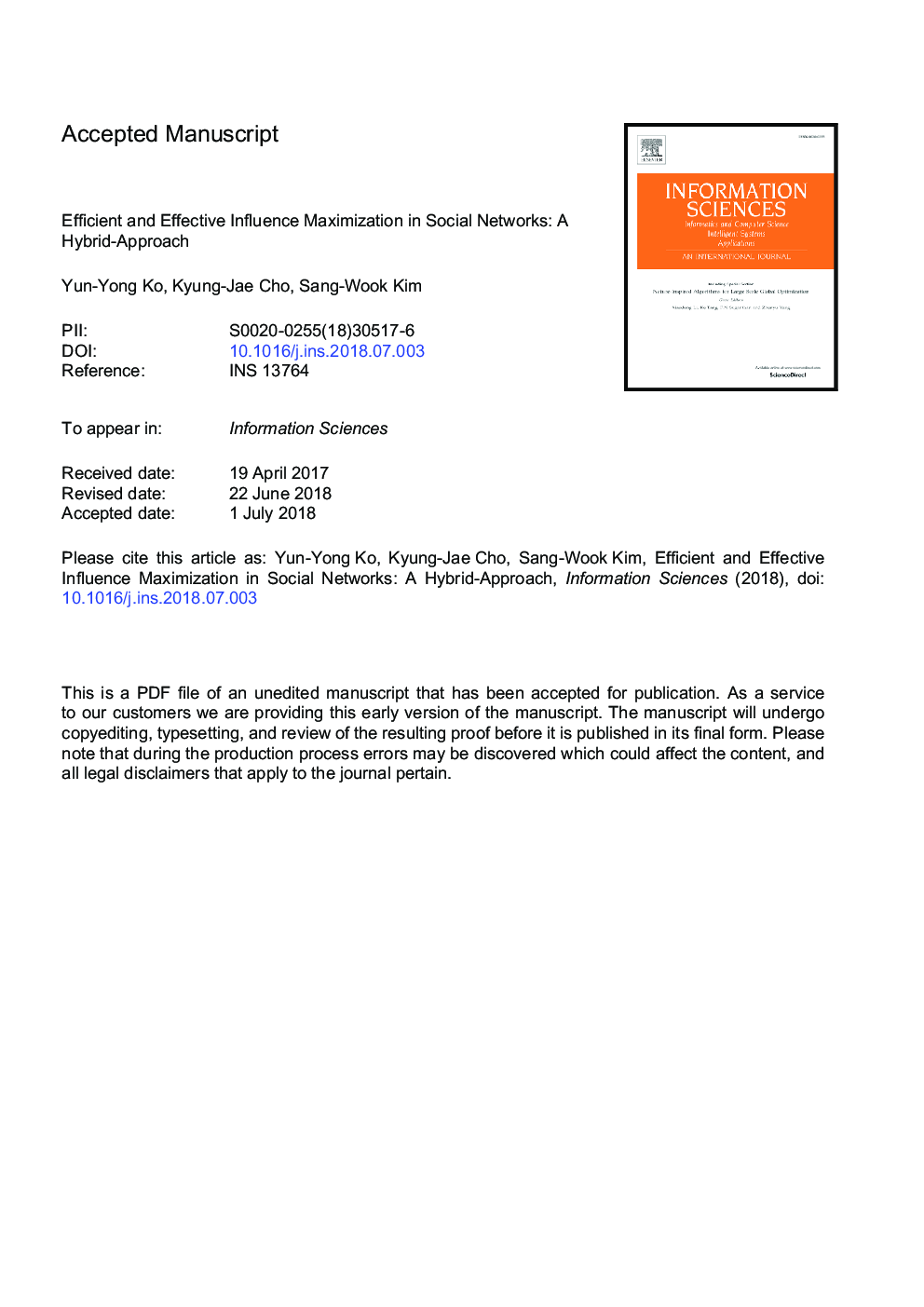| Article ID | Journal | Published Year | Pages | File Type |
|---|---|---|---|---|
| 6856180 | Information Sciences | 2018 | 31 Pages |
Abstract
Influence Maximization (IM) is the problem of finding a seed set composed of k nodes that maximize their influence spread over a social network. Kempe et al. showed the problem to be NP-hard and proposed a greedy algorithm (referred to as SimpleGreedy) that guarantees 63% influence spread of its optimal solution. However, SimpleGreedy has two performance issues: at a micro level, it estimates the influence spread of a single node by running Monte-Carlo (MC) simulations that are fairly expensive; at a macro level, after selecting one seed at each step, it re-evaluates the influence spread of every node in a social network, leading to significant computational overhead. In this paper, we propose Hybrid-IM that addresses the two issues in both micro and macro levels by combining PB-IM (Path Based Influence Maximization) and CB-IM (Community Based Influence Maximization). Furthermore, we identify two technical issues that could improve the performance of Hybrid-IM more and propose two strategies to address those issues. Through extensive experiments with four real-world datasets, we show that Hybrid-IM achieves great improvement (up to 43 times) in performance over state-of-the-art methods and finds the seed set that provides the influence spread very close to that of the state-of-the-art methods.
Related Topics
Physical Sciences and Engineering
Computer Science
Artificial Intelligence
Authors
Yun-Yong Ko, Kyung-Jae Cho, Sang-Wook Kim,
